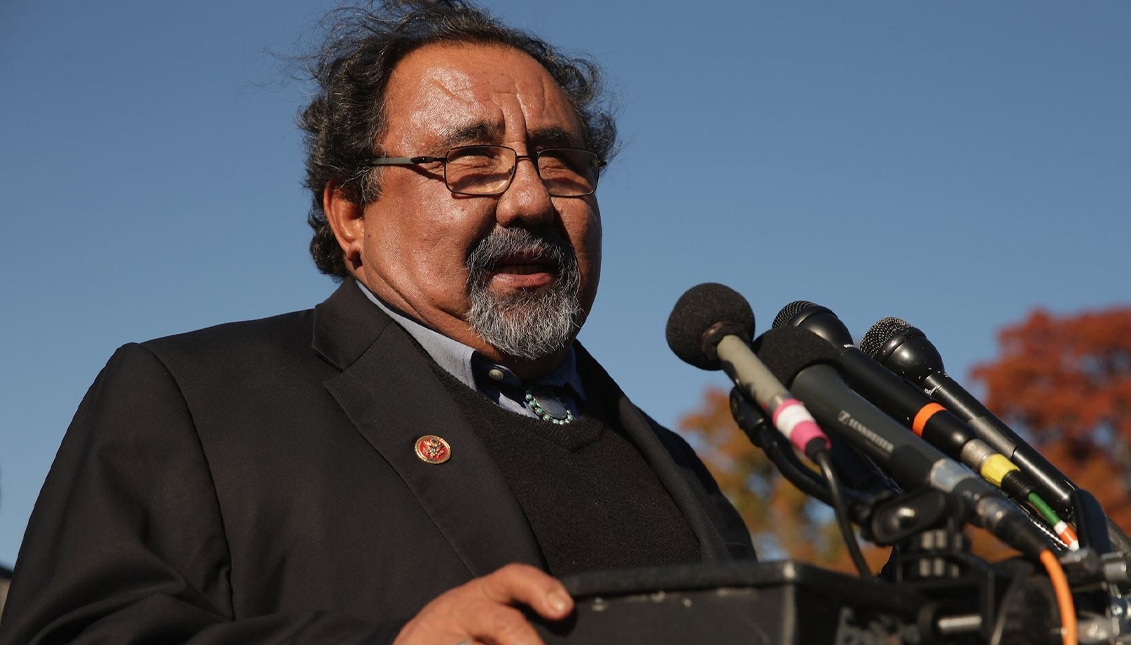
Inside Rep. Raúl Grijalva’s Ocean-Based Climate Action
Grijalva says he believes the Ocean-Based Solutions Act is what is needed to combat the Climate Crisis.
A new bill by Natural Resources Chair Raúl Grijalva (D-Ariz.) is a sweeping measure to combat the world’s growing Climate Crisis with a plan rooted in the ocean.
The 324-page bill, introduced Tuesday by Grijalva and supporting Democrats, would boost offshore wind energy production, bar new offshore oil and gas drilling, and boost coastal and wetland restoration.
The Ocean-Based Climate Solutions Act of 2020 offers a legislative guide for protecting and restoring the nation’s waters, should Democrats regain control of the Senate following the General election. Much like the Green New Deal by Rep. Alexandria Ocasio-Cortez, Grijalva’s bill will see little mobility in a Republican-controlled Senate.
Grijalva introduced the legislation in a virtual conference in partnership with the Natural Resources Defense Council (NRDC).
To drive the issue home, while making a long-standing issue resonate as the danger that it is, Grijalva conflated the mishandling of the Climate Crisis by the GOP to its handling of the COVID-19 pandemic.
Despite the warnings of doctors like Anthony Fauci, the Trump administration – while actually knowing the adverse effects of the virus early on — did little to mitigate the spread from the start.
“I think the American people support something decisive and urgent being done around the issue of Climate Change and Ocean-based solutions, [because] they also had the experience of this pandemic, and I don’t think there’s any appetite in part of the American people, to go through another experience in which our government has not prepared itself, where it doesn’t have those ingredients [...] in place to begin to deal with this issue,” Grijalva said.
There are two stories here. One, a swift pandemic that has touched the lives of virtually every person on the planet, and the other, a slow, but imminent change that will see catastrophic repercussions, and has thousands of studies to support it.
But no matter how much a “heads-up” world leaders have had, they’re on track to fumble this one too.
“We were not prepared, and the whole effort of protecting people and protecting economies was blown by this administration early on. And I think now there is a bigger focus on science and what that dictates, and that’s to our favor,” Grijalva said.
This is especially true because while every community is affected by climate change, not all are affected equally across the globe. Just in the United States, one’s residence determines the extent of potential damage.
RELATED CONTENT
Specific to climate change, coastal communities, faced with sea-level rise, harmful algae blooms, and ocean acidification are the most at risk.
Like with COVID-19, low-income communities, and communities of color will face disproportionate inequalities from a changing climate.
Grijalva’s bill will combat these issues, by prioritizing those most vulnerable, creating a coastal community vulnerability assessment, and creating a Tribal Resilience program to address climate impacts.
His bill seeks to directly answer the following: stop offshore drilling, protect ocean habitats, expand renewable energy, support climate-ready fisheries, addressing ocean health, increasing blue carbon and coastal resiliency, and reengaging in International and tribal ocean governance
“The ocean supports us in so many ways,” wrote Valerie Cleland with the NRDC. It feeds us, produces half the oxygen we breathe, and it has the power to mitigate climate change.
Humans need the ocean to survive. A healthy ocean means more food, jobs & recreation.
— Natural Resources Committee (@NRDems) October 20, 2020
Without #OceanClimateAction, the #ClimateCrisis will make the ocean unrecognizable for our children.
Watch @NRDems press conference on our new ocean climate bill ➡️ https://t.co/2dmzu2rZmx pic.twitter.com/KRCVtep1Br
At the core of Grijalva’s bill, is this sort of return to humanity’s relationship to nature, and doing our part in reversing the damage we’ve created.
“The way I look at it, we are in a reciprocal relationship with nature,” Grijalva said. “You reap what you sow. We polluters who have harmed our planet for decades, now we are all facing those consequences. But with solutions like this legislation and other proposals to confront climate change, we can and will do better.”











LEAVE A COMMENT:
Join the discussion! Leave a comment.